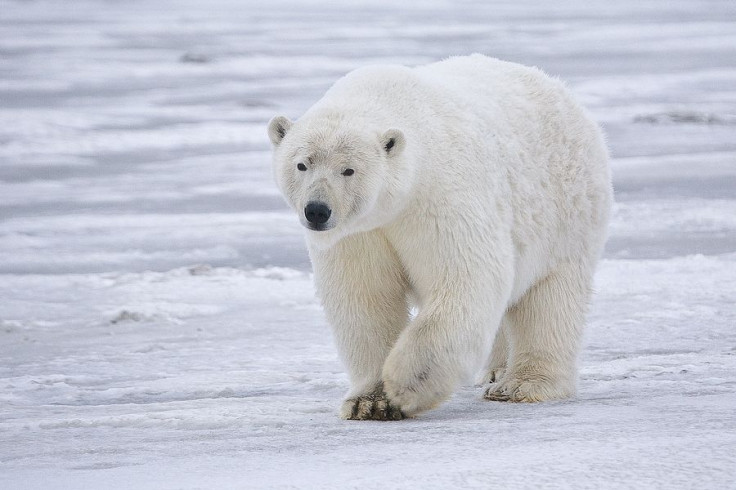Public, Private Efforts Needed To Save Polar Bears From Extinction: US Fish And Wildlife Service

A recent report published by the U.S. Fish and Wildlife Service claims that polar bears are on the verge of extinction because climate change has resulted in warmer temperatures in their natural habitat. Scientists say the death rate of the animal has accelerated in recent decades, as the polar ice cap melts away.
In addition, the report states that global greenhouse gas emissions have put nearly one-third of polar bears in danger of dying.
The agency has urged the public and private sectors to back an initiative called the “Draft Polar Bear Conservation Management Plan.” The plan will be directed toward the conservation of the natural habitat of the polar bear by reducing greenhouse gas emissions. In addition, the plan focuses on reducing polar bears' exposure to calamitous events such as oil spills.
Global warming has been long known to lead to melting of polar ice, thus limiting the polar bears' ability to search for food. However, there aren't enough food sources on land to sustain the entire population of polar bears during the summer months.
Even though researchers know of other steps that could save the polar bears, reducing greenhouse gas emissions would have the most immediate positive impact, they said.
"Addressing sea ice loss will require global policy solutions to reduce greenhouse gas emissions and likely be years in the making," ecologist Mike Runge said in a statement. "Because carbon emissions accumulate over time, there will be a lag, likely on the order of several decades, between mitigation of emissions and meaningful stabilization of sea ice loss."
There are around 20,000 to 25,000 polar bears remaining on Earth. Nearly 80 percent of them live in Canada. The U.S. plan is being implemented in Norway, Russia, Canada and Denmark.
© Copyright IBTimes 2024. All rights reserved.











